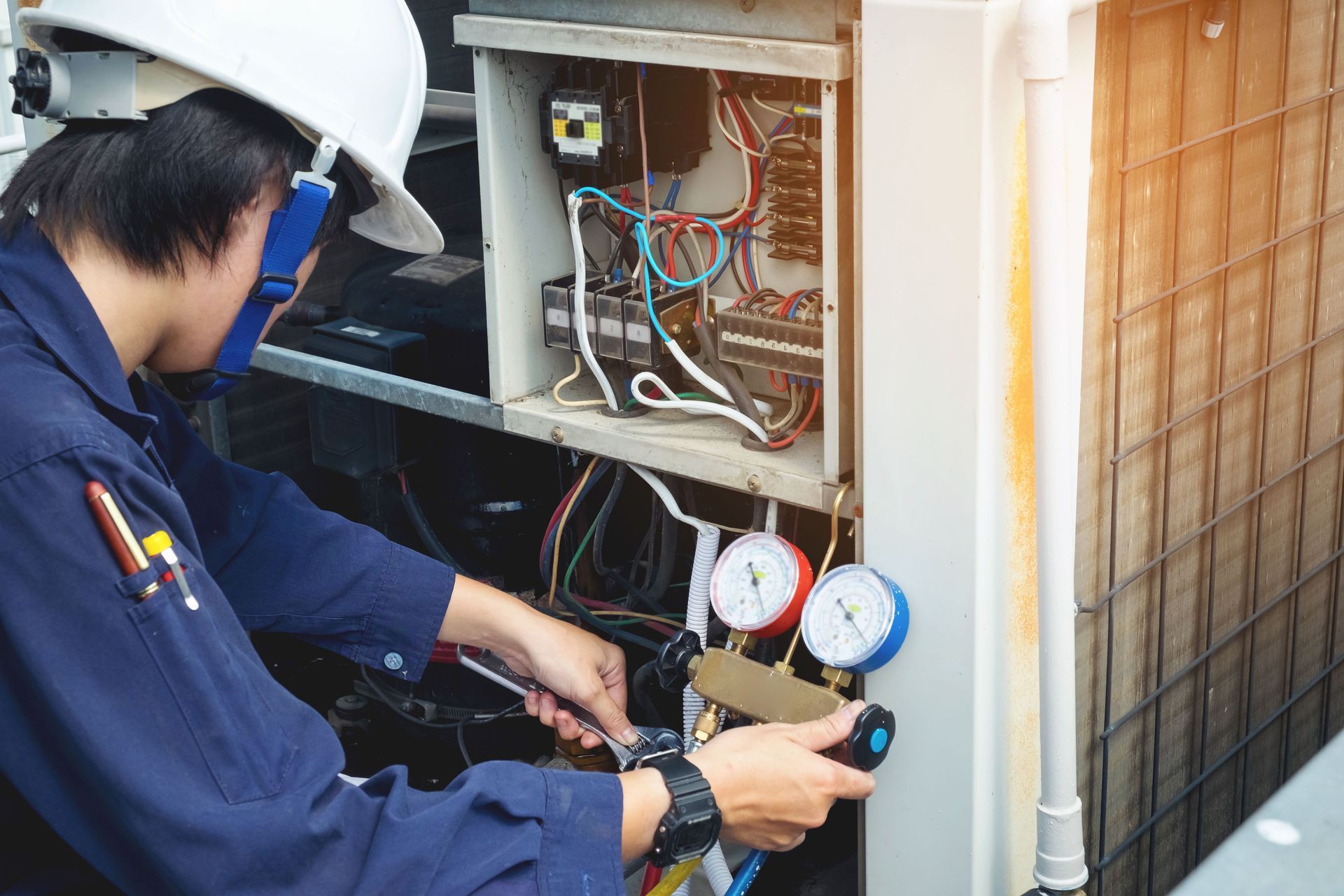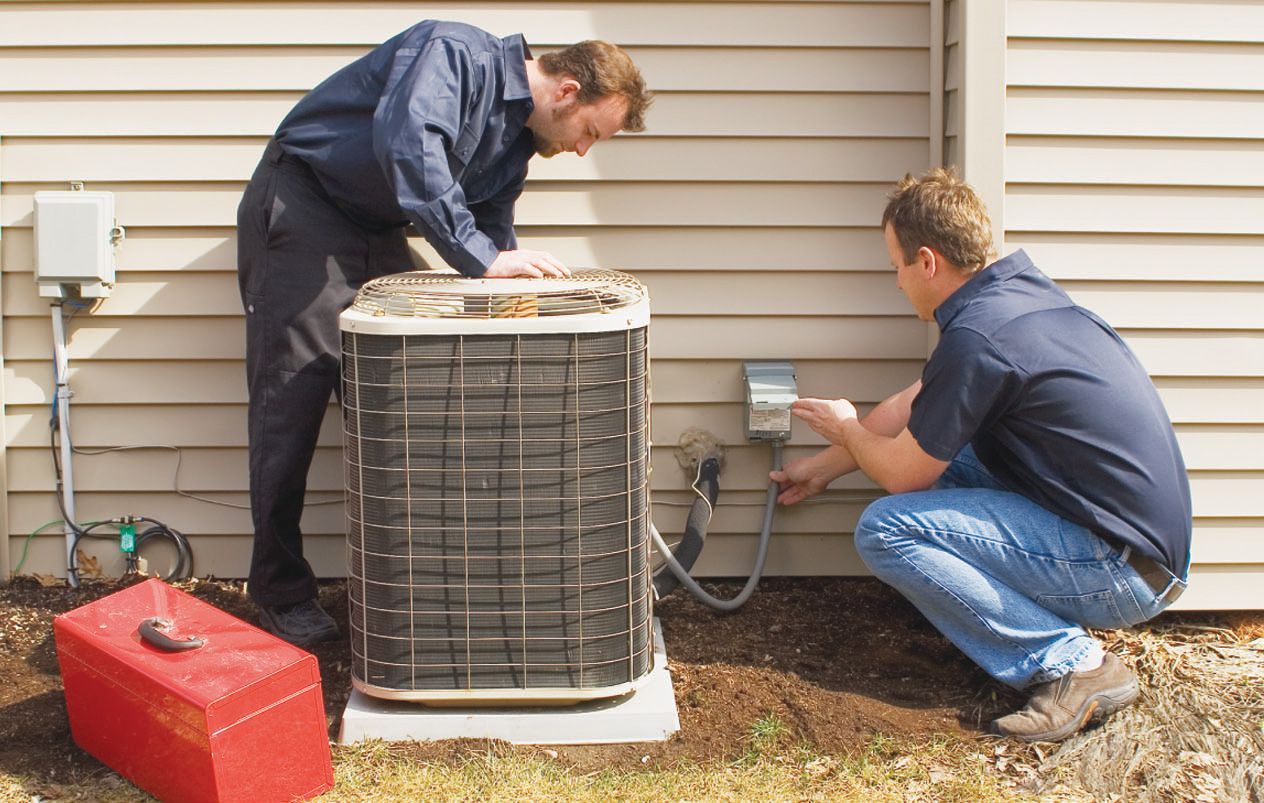October 17, 2025
A reliable heating, ventilation, and air conditioning (HVAC) system is essential for maintaining comfort and safety in your home. Whether it's the scorching heat of summer or the freezing chill of winter, a fully functioning HVAC unit ensures a consistent and comfortable indoor climate. Like any major appliance, however, HVAC systems have a limited lifespan. Over time, components wear down, efficiency drops, and repairs become more frequent. Recognizing when it's time to replace your HVAC system can save you money, prevent unexpected breakdowns, and improve overall energy efficiency.
Here are five key signs that can help you determine whether your HVAC system is struggling or nearing the end of its useful life, and may need to be replaced to maintain comfort, efficiency, and reliability in your home.
1. Frequent Breakdowns and Repairs
One of the clearest signs that your HVAC system may be reaching the end of its life is the frequency of breakdowns and repairs. Older systems naturally experience wear and tear, and components such as compressors, motors, and coils can fail over time. If you find yourself calling HVAC companies repeatedly to fix the same problems, it may be more cost-effective to invest in a new unit rather than continue repairing an aging system.
Frequent malfunctions not only disrupt your comfort but also increase your energy consumption. A struggling system must work harder to reach the desired temperature, which translates into higher utility bills. An HVAC company can often suggest evaluating your system if you've needed three or more major repairs in a single year. At that point, replacement may be more economical in the long term than continuing to pay for recurring fixes.
Furthermore, frequent breakdowns can create additional stress, especially during extreme weather when HVAC companies are in high demand. By recognizing this sign early, you can avoid inconvenient emergency calls and maintain a comfortable home environment year-round. Proactively addressing these issues not only saves money but also helps ensure the safety and well-being of everyone in your household.
2. Rising Energy Bills
A noticeable increase in your energy bills without a corresponding change in usage is another strong indicator that your HVAC system may be failing. As units age, efficiency decreases. Components such as compressors, motors, and ductwork can degrade, forcing your system to consume more energy to maintain a consistent temperature.
According to This Old House, air conditioning compressors and furnaces generally have a life span of about 15 years. Once your system approaches this age, its efficiency tends to drop significantly, and energy bills may rise even if your usage patterns remain the same. Monitoring your monthly energy consumption is essential; if your bills continue to climb, it may be time to consult HVAC companies for an evaluation.
Replacing an outdated unit with a modern, energy-efficient system can dramatically reduce utility costs while providing more consistent heating and cooling. Many newer models also include programmable thermostats and advanced sensors that optimize energy use, further improving savings. Upgrading to a modern system can also increase your home's overall value and provide long-term peace of mind by minimizing unexpected breakdowns.
3. Uneven Heating or Cooling
Do certain rooms in your home feel uncomfortably hot or cold, despite setting the thermostat correctly? Uneven heating or cooling is often a symptom of an aging or failing HVAC system. Over time, ducts can become clogged or damaged, and key components may fail to distribute air evenly. Identifying these inconsistencies early can help you determine whether simple maintenance will suffice or if a full system replacement is necessary.
Persistent temperature inconsistencies indicate that the system is struggling to perform efficiently. While minor adjustments or maintenance may temporarily improve airflow, a system that cannot maintain uniform temperatures across your home is likely nearing the end of its service life. Investing in a properly sized, modern HVAC unit can restore consistent comfort throughout your home and prevent energy waste caused by overworked components.
HVAC contractors often recommend replacing units that show consistent temperature imbalances. Upgrading ensures all rooms are comfortable, prevents excessive energy usage from overworking the system, and eliminates the frustration of uneven heating or cooling. A properly sized and modern HVAC unit can restore consistent comfort while improving overall energy efficiency.
4. Strange Noises or Odors
An HVAC system should operate quietly and without producing unusual smells. If you hear grinding, squealing, or rattling noises, it may indicate that internal components such as motors, fans, or belts are failing. Similarly, strange odors — like burning, moldy, or musty smells — can signal electrical issues or mold growth within your ductwork.
Ignoring these warning signs can lead to more serious and costly problems, including complete system failure or safety hazards. HVAC companies emphasize that unusual noises or odors should never be dismissed. Prompt inspection can determine whether a repair is sufficient or if replacement is necessary.
Modern HVAC systems are designed to run quietly and efficiently, eliminating many of these issues. Replacing an old unit can improve indoor air quality, reduce energy usage, and restore a comfortable, noise-free environment in your home. In addition, upgrading to a newer system can provide advanced features and smarter controls, giving you greater convenience and long-term reliability.
5. Frequent Use of Emergency Services
If you consistently require emergency HVAC service to restore heat or air conditioning, it's a major warning sign that your system is no longer reliable. Recurrent breakdowns indicate that the unit may soon fail completely. Addressing these issues proactively by consulting HVAC companies can prevent costly emergency repairs and ensure your home remains comfortable year-round.
Relying on emergency repairs is both inconvenient and expensive. Many HVAC companies note that frequent emergency calls suggest replacement is the best long-term solution. A new system provides peace of mind, knowing your home will remain comfortable year-round without unexpected breakdowns.
Modern HVAC units also feature advanced diagnostics, which help identify potential issues before they escalate. Upgrading ensures your system is more durable, requires less frequent maintenance, and provides consistent performance. For homeowners, investing in a new HVAC unit is a proactive step that prevents emergency situations and enhances overall comfort.
Your HVAC system is a vital component of your home, providing comfort and safety throughout the year. Recognizing the signs of a failing unit — such as frequent breakdowns, rising energy bills, uneven temperatures, unusual noises or odors, and repeated emergency repairs — can help you avoid unexpected disruptions and costly maintenance.
If your HVAC system is showing persistent warning signs or struggling to perform efficiently, it's a good idea to consult reputable HVAC companies for a professional evaluation. Replacing an aging unit ensures your home remains comfortable, energy-efficient, and safe. Modern systems provide improved performance, quieter operation, and better air quality while reducing the risk of sudden breakdowns and costly emergency repairs.
Investing in a new HVAC system is not just about immediate comfort — it's a long-term strategy for savings, convenience, and peace of mind. By acting early and paying attention to the warning signs of system decline, homeowners can maintain a consistent indoor environment while avoiding the stress and expense associated with an unreliable or outdated unit. Partnering with experienced HVAC companies ensures you receive guidance tailored to your home's needs, helping you make an informed decision and enjoy a reliable, efficient system for years to come. If you need the services of a reputable HVAC company, reach out to Absolute Value AC LLC today!




